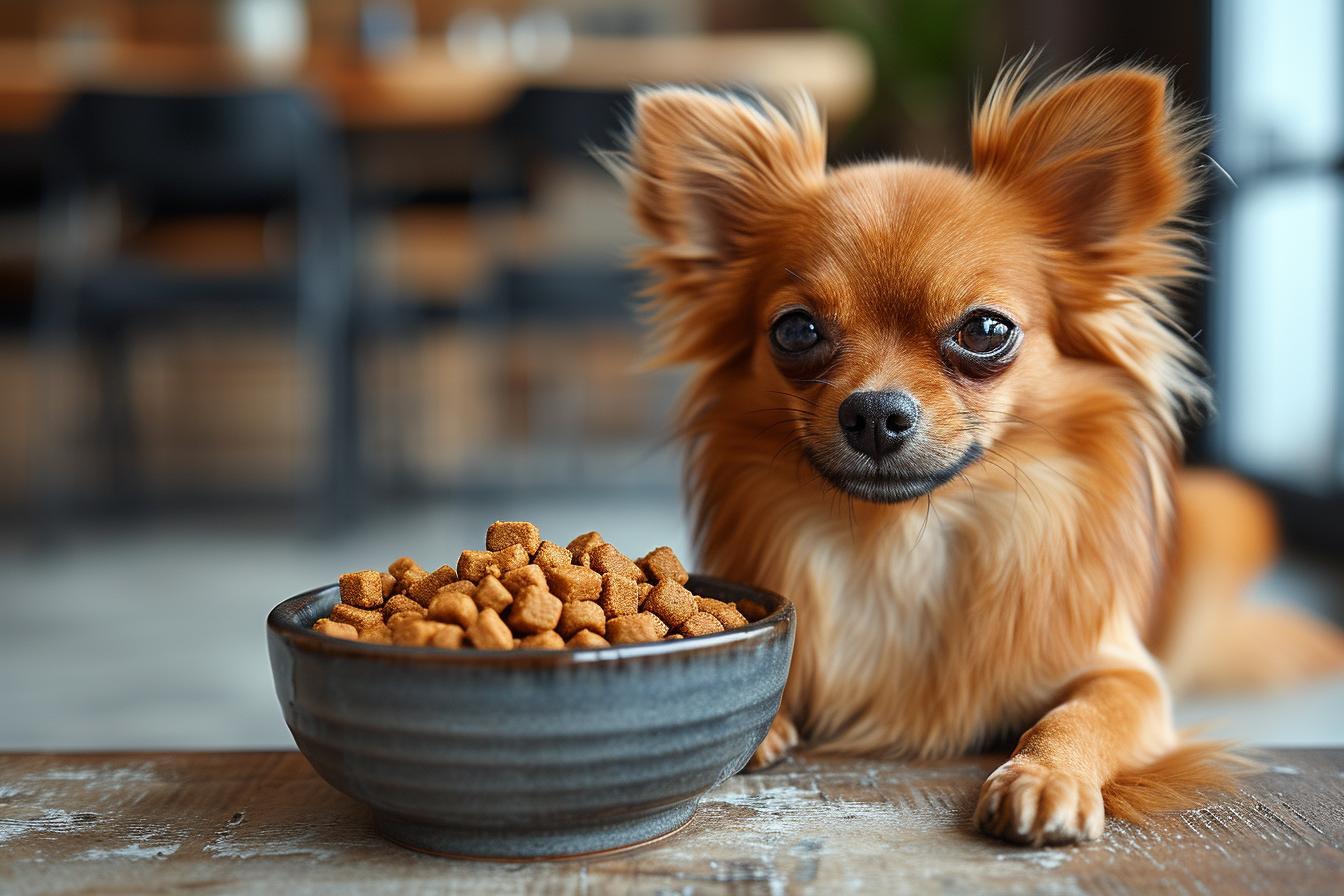When we think of the Chihuahua, this lively small breed of dog, we often imagine glamorous images of celebrities strolling the streets with these tiny companions snuggled tenderly in their arms. Behind these elegant façades, however, lies a very real concern, common to all responsible owners: the balanced nutrition of these four-legged friends. Whether they are Hollywood stars or adored anonymously, Chihuahuas have specific nutritional needs. In this article, we will delve into the world of these pocket canines to discover the right balance of nutrition that will preserve their health and vitality.
The ideal menu for Chihuahuas
When it comes to feeding a Chihuahua, the choice of food is crucial. These dogs must consume a complete and balanced diet designed to meet their specific nutritional needs. According to the guidelines of the AAFCO and the recommendations of the World Small Animal Veterinary Association (WSAVA), Chihuahua owners should prioritize meals composed of high-quality proteins, fats, carbohydrates, vitamins, and minerals, all in proportions adapted to the tiny size of the dog. Foods specifically formulated for small breeds are often recommended, as they are formulated with these needs in mind.
Perfect portions for little paws
The amount of food a Chihuahua should consume can vary based on their age, weight, activity level, and overall health. A veterinarian will be able to provide precise advice, but a general rule of thumb is that adults should eat about 40 calories per pound of body weight each day. This means that a typical Chihuahua, weighing an average of 6 pounds, may need around 240 calories per day, an amount that should be adjusted if the dog is particularly active or tends towards sedentary behavior.
The rhythm of meals
In terms of meal frequency, Chihuahuas often benefit from multiple small meals throughout the day, rather than two large meals. This can help maintain their energetic metabolism and prevent hypoglycemia, a common issue in small breeds. Ideally, it is best to refer to the veterinarian’s recommendations, but a rhythm of three to four meals per day is common for adults, while puppies may require more frequent meals.
The dangers of malnutrition and greed
Underfeeding and overfeeding are serious issues that can cause lasting damage to the health of a Chihuahua. Underfeeding can lead to nutritional deficiencies and weaken the immune system, while overfeeding can lead to obesity and its many detrimental effects on health, such as joint and heart disorders. It is therefore crucial to respect recommended portions and provide a balanced diet.
The threat of canine obesity
Speaking of obesity, this condition poses a significant risk to Chihuahuas, especially since their small size makes any excess weight proportionally more damaging. Obesity can increase the risk of diabetes, heart disease, and joint pain, thus reducing the quality of life and lifespan of dogs. Owners must be particularly vigilant in avoiding overweight in their small companions.
Tips for an overweight Chihuahua
To help an overweight Chihuahua, a combination of controlled diet and regular exercise is recommended. A diet designed by a veterinarian can ensure that the dog still receives essential nutrients while reducing calorie intake. Additionally, engaging activities tailored to the size of the Chihuahua, such as walks and light play, can help burn excess calories and promote a healthy weight.
Managing the nutrition of a Chihuahua is one of the most important aspects in guaranteeing a healthy and happy life for these little canine treasures. Carefully following nutritional recommendations, regular consultation with a veterinarian, and keeping a close eye on the fitness level of your Chihuahua are valuable assets in the journey of any dedicated owner. Committing to these practices is the recipe for years of shared happiness with your miniature companion.







